Horror number of Australians who have contemplated suicide amid soaring cost of living revealed
A shocking number of middle-aged Australians earning up to $149,000 a year have considered suicide in the last year as cost of living has skyrocketed.
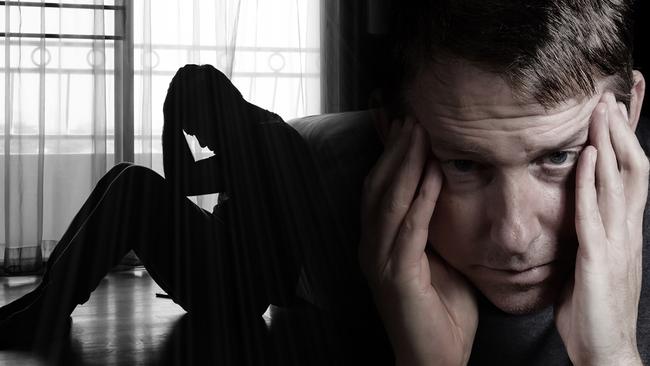
News
Don't miss out on the headlines from News. Followed categories will be added to My News.
More than one in five Australians have experienced suicidal behaviour in the last year — with one in six having serious thoughts of ending their own lives — as living costs have soared in the shadow of the Covid pandemic.
And it is “middle-age, middle-wage” Australians — earning between $100,000 and $149,000 — most in trouble.
It comes as the federal government cuts the number of subsidised mental health sessions available to struggling Australians by half, in a move widely condemned by psychologists and doctors.
The Victorian government has also been too slow to act in supporting people in desperate need and at risk of taking their own lives, mental health authorities say.
Exclusive new data from Suicide Prevention Australia, provided to the Herald Sun this week, reveals four per cent of the Australian population went so far as to make a suicide plan and two per cent attempted to take their own lives in 2022.
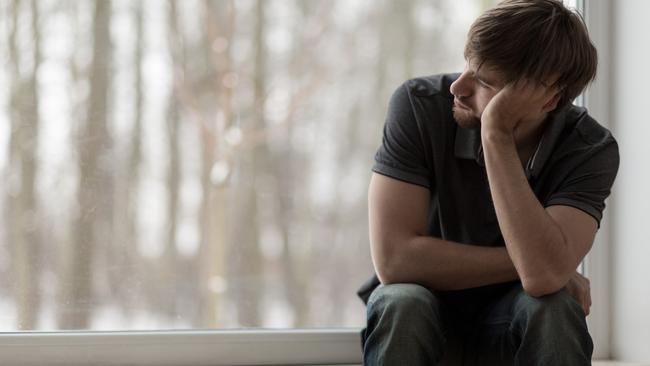
Nearly twice the number of men than women had experienced suicidal behaviour, while three times more males than females had actually gone so far as to make a suicide plan.
More Victorians than people from any other state attempted suicide, the horrifying figures from nation’s peak suicide prevention body show.
Australians aged 25 to 34 experienced the highest instances of suicidal behaviour
compared to other age groups, closely followed by 35 to 49-year-old age bracket.
“Australians earning $100,000 to 149,000 per year were the most likely to have experienced
suicidal behaviour over the last 12 months at 39 per cent,” a SPA spokeswoman said.
“And 29 per cent had serious thoughts of suicide, seven per cent made a plan and two per cent made an attempt.”
SPA chief Nieves Murray said the country was “at a tipping point” in the mental health care of its population.
“This is not going to go away. We can’t sleepwalk into a crisis, we need to wake up and take action. This is a wake-up call, we can’t afford to bury our heads in the sand,” she said.
The latest data from the SPA community tracker (part three) also showed people were desperately reaching out for help, with 83 per cent of those who reported having experienced suicidal behaviour in the past year having sought support from services like Lifeline, Beyond Blue and psychologists; which were now overwhelmed.
Nearly 90 per cent of frontline suicide prevention services had experienced a surge in demand over the last 12 months, Ms Murray said.
Data from late last year showed rising cost of living and personal debt were the No.1 issues creating distress for most Australians, she said.
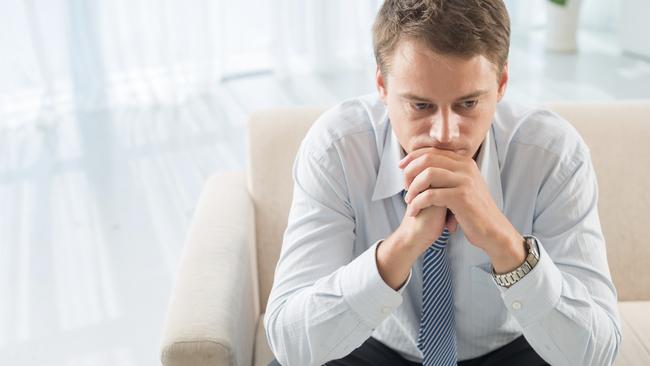
Major banks have repeatedly jacked up their mortgage interest rates over the past 12 months, rents have risen, many private schools have increased fees — causing some families to contemplate pulling their children out — and costs of everyday grocery items and energy bills have soared.
“National distress over housing access and affordability had grown faster than all other causes of distress – particularly among middle-age and middle-wage Australians,” Ms Murray said.
Recent Victorian Coroner’s Court suicide data showing at least 686 people had taken their own lives in the state between January 1 and November 30 last year — a five-year high — was both “tragic and heartbreaking”, she said.
“It’s clear that people are struggling and that we need government action urgently,” Ms Murray said.
Ballarat schoolteacher and local footy stalwart James Petrie, 33, was just one of the lives lost to suicide last year.
At his March funeral, Mr Petrie’s father called him “one of the most respected, loved, and compassionate men you would ever meet”, who struggled with “demons of depression”.
“To me, it was as if James was stranded on a frozen lake,” he said.
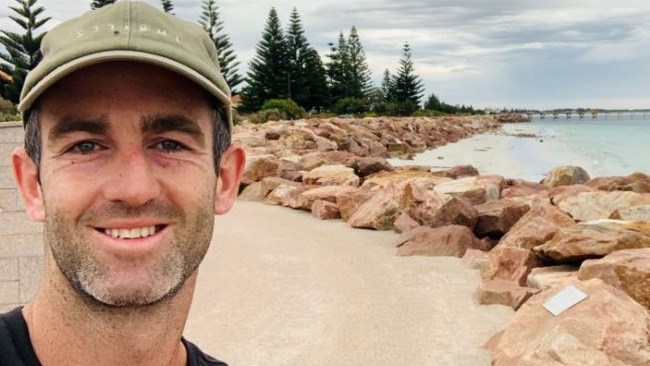
“He was in the middle, and we could not reach him; it was too dangerous and we couldn’t carry him. Last year, as James began to realise something was changing in him, he reached out to seek and search for recovery or a place that could be comfortable with him.
“James’s story has no end. His story for mental health is loud and strong. If we remain silent, nothing will happen.”
Ms Murray said a multimillion-dollar government relief package was needed as soon as possible to help the mental health support sector respond to growing need and “keep up with millions of calls” for help, online searches and counselling sessions.
In the longer term, major systemic reform was needed to make a real difference, by
mandating the awareness and accountability of every state and federal government department to the potential impacts of any and all its decisions on people’s mental health, she said.
This would take the form of a Suicide Prevention Act similar to that introduced in Japan in 2006 and which had seen suicide deaths fall 40 per cent since that time.
“We know the Victorian government is developing a new suicide prevention and response strategy. A key feature of this needs to be a Suicide Prevention Act,” Ms Murray said.
“On a federal level, a National Suicide Prevention Act would ensure every government minister and department — whether it’s housing, education, social security or health - is aware and prepared for the human impact of their policy decisions. This is a critical step in protecting our community at a time when it’s needed most.”
Pressures driving men to ‘point of no return’
Epping father Vinay Nair’s battle with the black dog officially began after his arrival in Australia as a 23-year-old from India, as an international student trying to make a success of himself in a Lucky Country.
But the seeds of recurring depression, the now 42-year-old says, were likely sown much earlier, through adverse childhood experiences.
For him, like many other men, depression can rear its head through unreasonable and misplaced anger, risk taking and lashing out.
The Covid pandemic delivered a unique set of challenges including isolation leading to fading and fractured relationships, and now there is financial stress as cost of living skyrockets.
But with knowledge and support, he’s in as good a place as he can be right now and has a precious baby to care for.
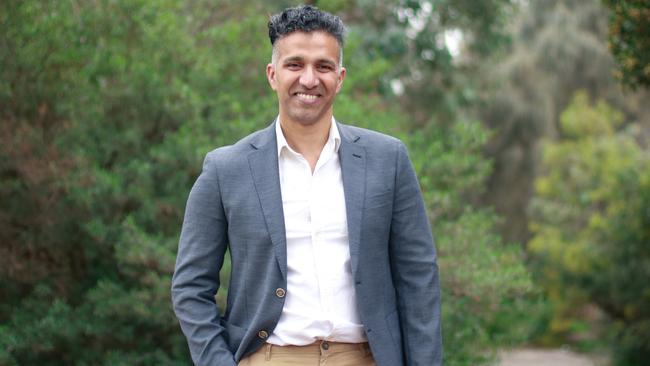
Mr Nair has managed his depression with professional help and by learning all he can about it — a mission he was so committed to he studied in the field and went on to become a counsellor and mental health worker. Outside his full-time work, he runs community-based mental health initiatives including mens’ walk-and-talk sessions.
He hears from those he counsels, works with, family and friends about the pressure “mid-age, mid-wage” Australians are increasingly feeling to provide for family, amid spiralling mortgage and other living costs.
He has also supported a loved one through serious mental health issues in the past, gaining a deep and very personal knowledge of how to care for people in need.
“I look around in my family setting, my friend circle and the only reason they go to work is to provide. They’re always thinking about how they can make more money. Is there a better investment they can make? And they’re worrying about the investments they’ve made in the past,” Mr Nair said.
“They’re not stresses men necessarily want to talk about because they don’t want to be viewed as not capable — not on top of things.
“Men can fear that they’re going to be judged and, as a result, shut down, even with their partners.
“I think for men this concept of not being able to ask for help with some of these major life stresses is probably one of the biggest things driving them to a point of no return.”




